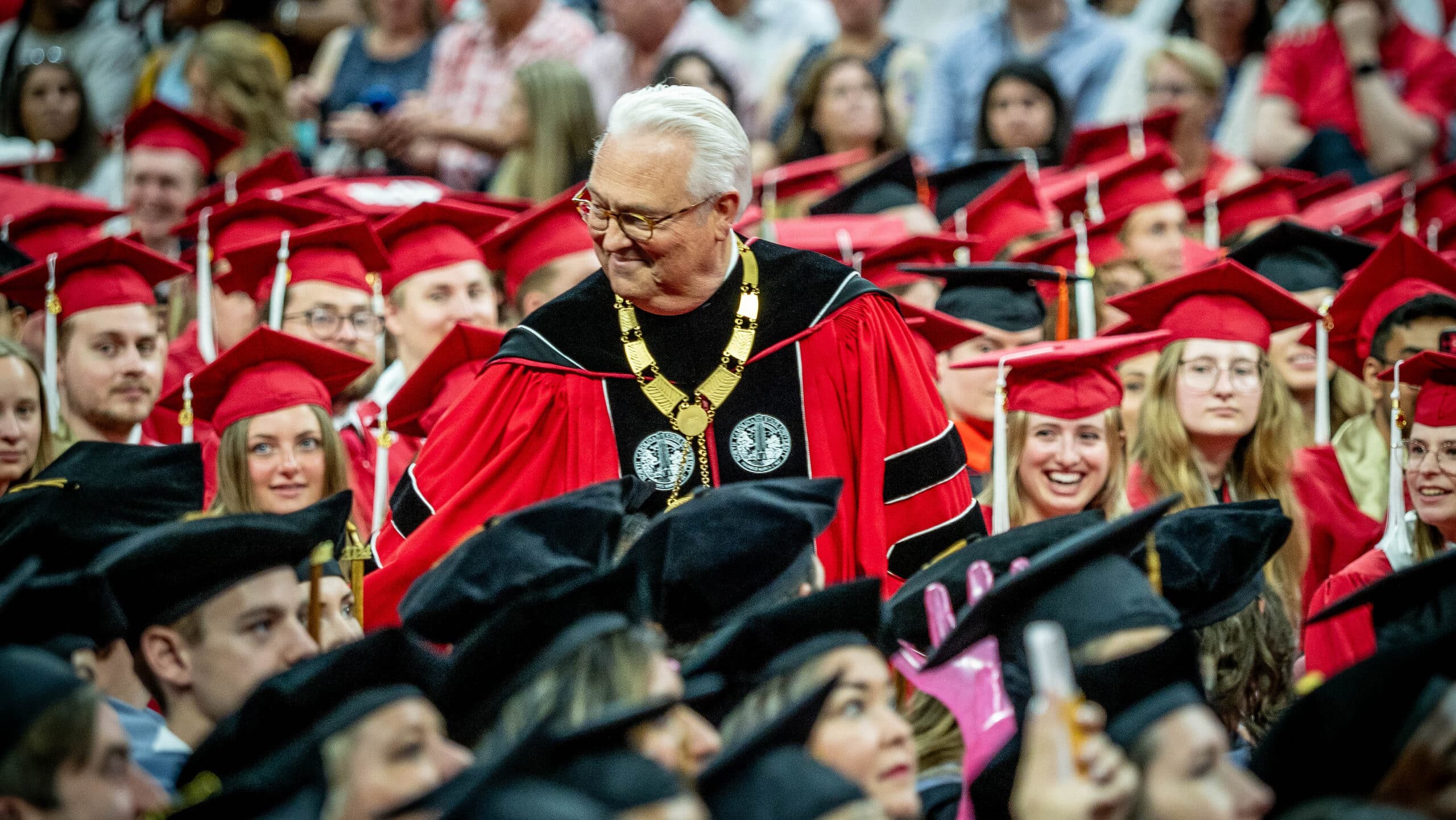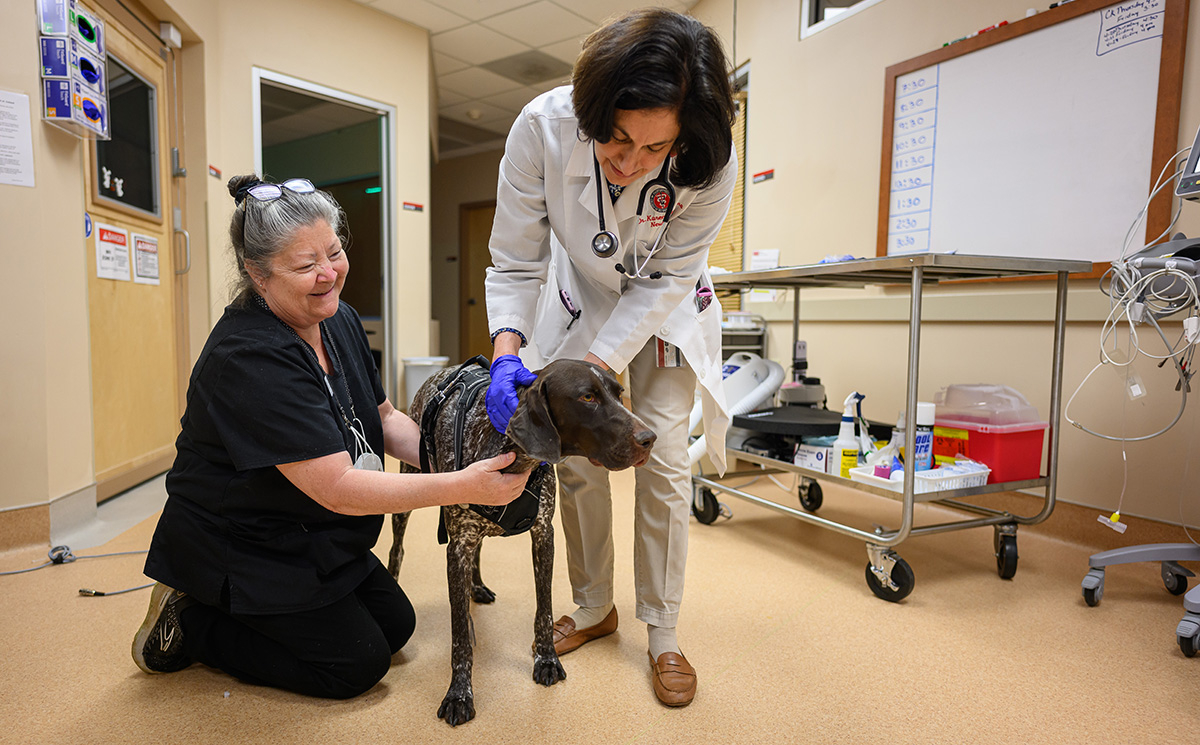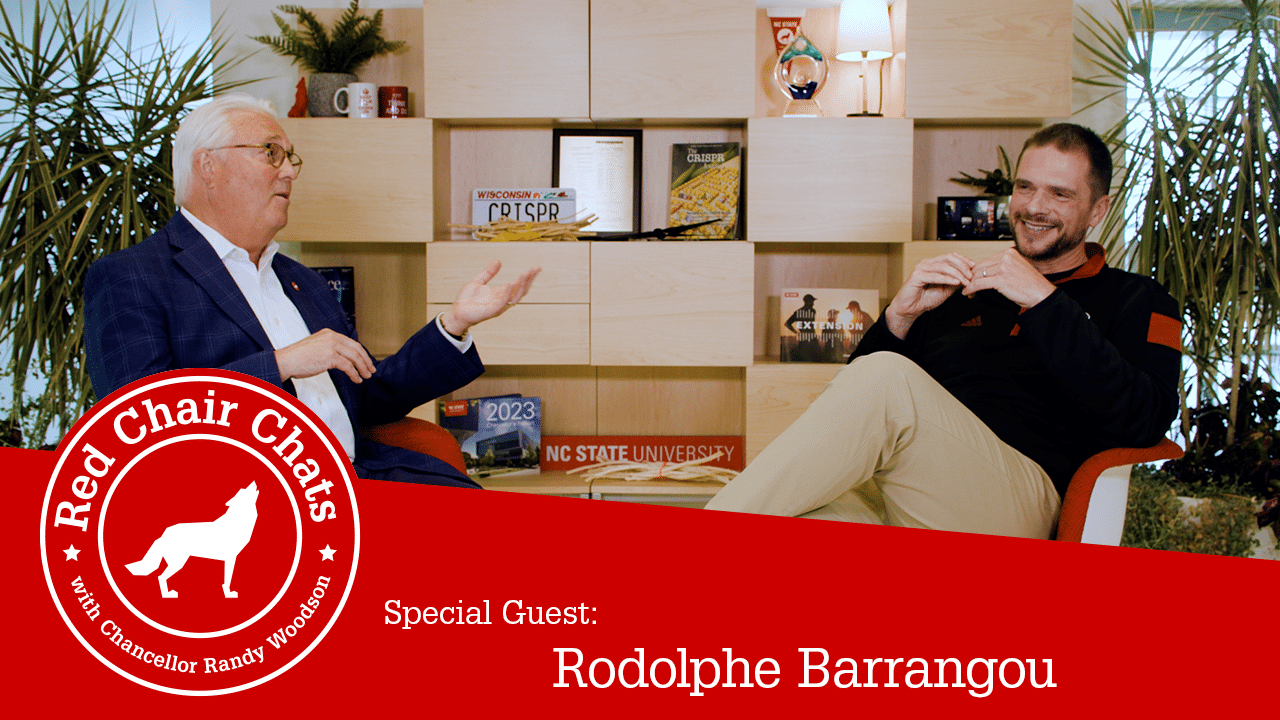Silent Spring
Voices demanding democratic reforms have mostly been silenced in the Middle East since the Arab Spring revolutions more than a decade ago. For a time, Mohammad Moussa helped elevate those voices for an American audience through poetry. Learn how his work as a spoken word artist was shaped by loss and grief and resonates to this day.
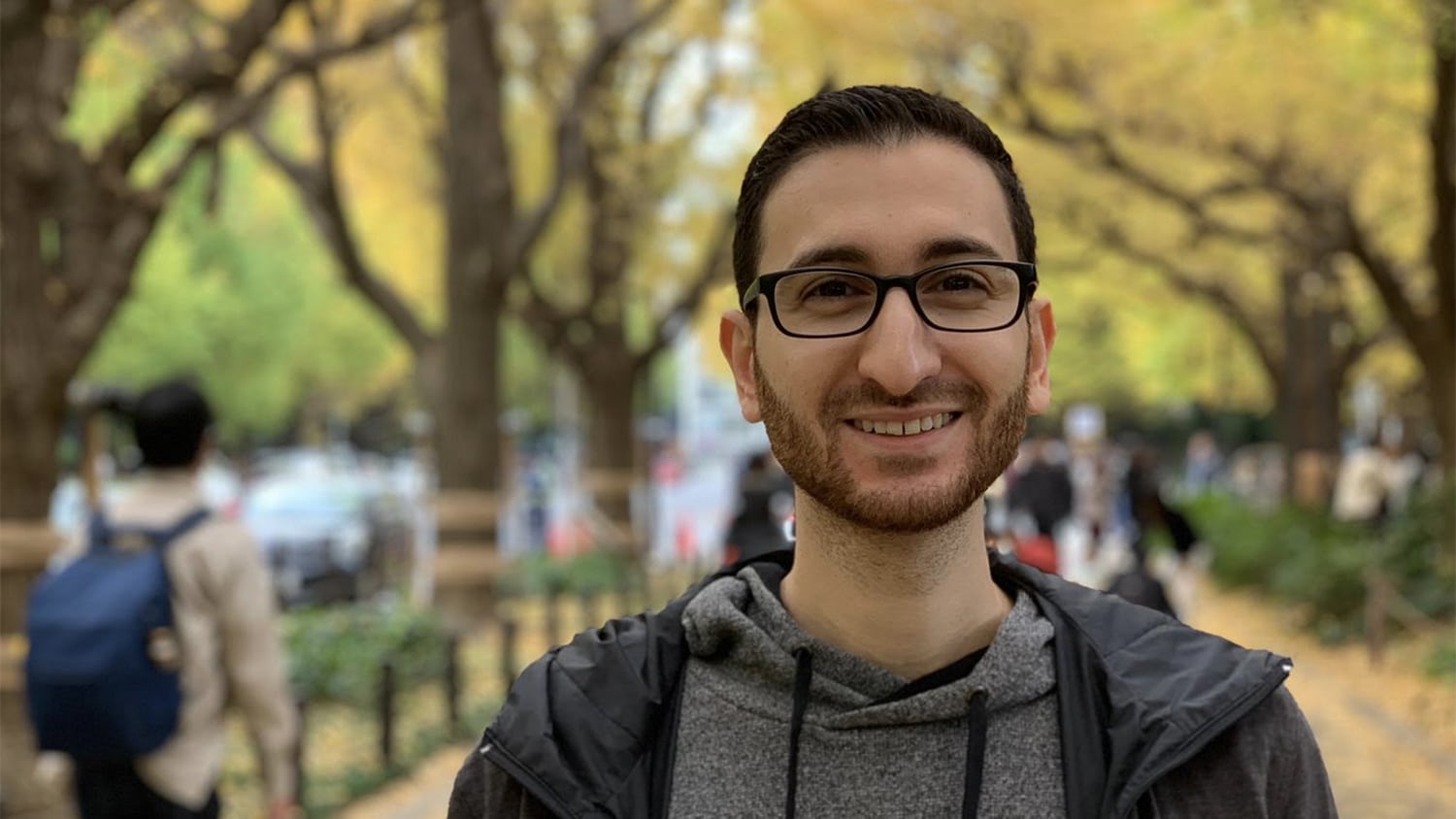
Mohammad Moussa is a poet and an engineer, expressing himself in both the precise binary language of computer code and the restless, lyric patterns of the spoken-word artist. If he finds switching between the contradictory impulses challenging, he doesn’t let on.
If anything, his ability to confront and sometimes soften the world’s rougher edges through reflection and metaphor seems to keep him grounded.
When I met the computer engineering student in the spring of 2011, he was preparing to travel to Egypt and Tunisia for a project called “Poetic Portraits of a Revolution.” He would be joined by fellow NC State student Sameer Abdel-Khalek — a photographer and filmmaker — and two award-winning poets, Kane Smego and Will McInerney.
Their goal was to bear witness to history, to capture the voices and images of the people participating in the pro-democracy Arab Spring protests that were sweeping the Middle East and North Africa. With the support of the Academy Award-winning Empowerment Project, they hoped to spin off a book, documentary film, photo installation and theatrical production when they returned.
“People have brought about change … and they’ve done it all through their voices,” Moussa told me before he left on the trip. “As someone who writes poetry, it’s extremely inspiring to see that, to see the voice winning in such a huge struggle.”
Over that summer, the team found its own voice, sharing their poems locally on WUNC and nationally on Dick Gordon’s popular radio program, The Story, and on NPR’s Morning Edition.
Looking back, Moussa says he’s grateful they were able to reach such a wide audience.
“The people at WUNC really bet on us,” he says. “They said, ‘We know you’re not journalists. We get that you just have this wild idea to write poetry in middle of a revolution, but let’s see where it goes.’”
The station’s technicians showed the poets how to record and edit audio in the field and how to upload their audio files to WUNC’s server.
“I remember Program Director David Brower telling us to lean into the fact that we were artists and not journalists,” Moussa says. “That was really helpful advice.”
Back on Campus
I interviewed Moussa and Abdel-Khalek in August of 2011 after they returned to campus, clearly changed by their experiences in Egypt and Tunisia.
“Mohammad Moussa’s voice has changed in the seven months since he boarded a plane for a summer trip to the Middle East,” I wrote. “It’s measured and more self-assured, perhaps older. It would be more accurate to say the 20-year-old computer engineering student found his voice on the journey, discovering the power of the spoken word to bridge cultures and touch hearts.”
As they recounted their tale, it became clear that the trip had been far more dangerous than they’d expected.
“The students braved tear gas, dodged rubber bullets and barely escaped arrest as spies,” I wrote. “Despite the danger, they gave voice to a revolution and created what could become a new form of journalism.”
They delivered the first full performance of “Poetic Portraits of a Revolution,” a multimedia presentation that blended poetry and images, at Stewart Theatre in January 2012.
The optimism of that time is now gone. Although Tunisia has enacted some political reforms, the other countries touched by the Arab Spring protests have effectively quashed their citizens’ democratic stirrings and silenced their voices.
Moussa says the poets had no illusions that the region’s path to democracy would be an easy one.
“When we went, we almost wanted to tear down the idea of romanticizing the revolution,” he says. “But at the same time, being there and being in the same room as folks who had taken part in the original protests and hearing from activists, we had a sense of immense hope and optimism for the future.
“It’s tragic, honestly. It’s really tragic.”
Then, quoting Martin Luther King Jr., he retrieves some of that optimism.
“The arc of the moral universe is long,” he recites. “But it bends toward justice.”
Tragedy in Chapel Hill
The next time I spoke with Moussa was on a cold February morning in 2015, when I reached him by phone at his home in California. In the moment before he answered, it occurred to me that maybe he hadn’t heard yet about the previous afternoon’s shootings in Chapel Hill. Perhaps his friends and family had given him the gift of one last night of peaceful sleep.
But tragic news travels with merciless efficiency. Of course, Moussa knew that his friends Deah Barakat, Deah’s wife, Yusor Abu-Salha, and Yusor’s sister, Razan, had been murdered by a neighbor as they prepared dinner the previous evening.
I asked him to tell me about his friends, to distill the essence of their lives into a few words we could share on the university’s news site. But he was shattered. The pain was too raw, too powerful. So we cried instead.
“Why?” he said finally, his gentle voice strangled by grief. “They were such beautiful souls, such good people.”
Moussa met Barakat and Yusor Abu-Salah through NC State’s Muslim Students Association when they were all undergraduates. The couple had recently moved to Chapel Hill to pursue graduate studies in dentistry at Carolina. Moussa and his wife Doaa had settled in San Diego, where he was working as a senior digital design engineer.
“Deah and Yusor were only married six weeks,” Moussa told me regretfully. “I couldn’t be at their wedding, but I’ll be at their funeral.”
Shattered Glass
To cope with the grief of his friends’ senseless murder — and to counter the media narrative that they were killed over a parking dispute — Moussa turned to poetry, creating a multimedia performance piece called “Shattered Glass” in the fall of 2015.
“After our nightmares come alive, how do we remember how to dream?” Moussa said in a Facebook post announcing the first performance. “In this piece, the audience goes through a journey of loss, emptiness, comfort and growth as they try to find some answers.”
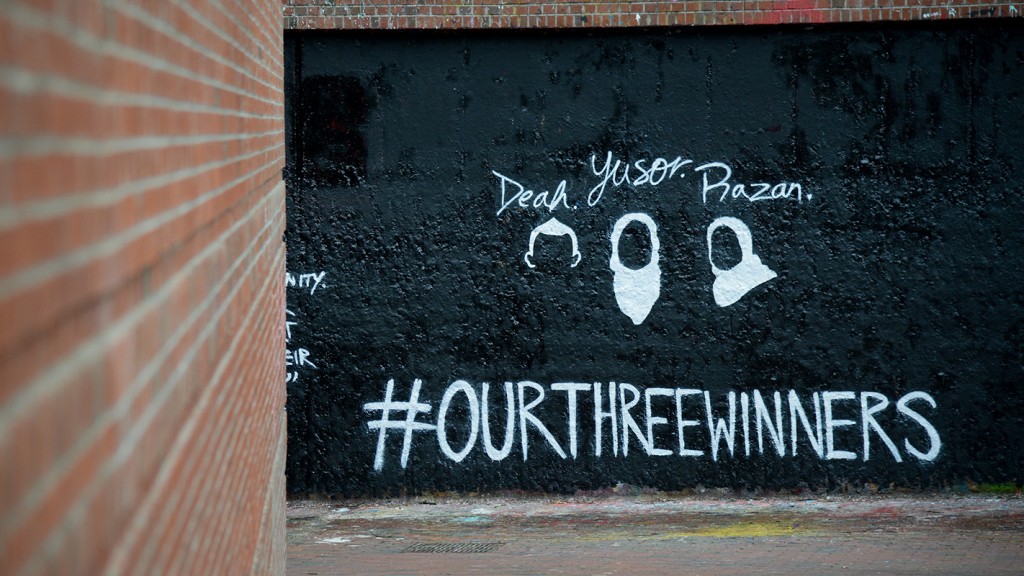
After I attended the December performance, in which the wail of sirens reverberated against the relentless cadence of Moussa’s tortured verse, I described it as “a brilliant, furious, breathtaking work.”
For Moussa, “Shattered Glass” allowed him to use the familiar tools from his work in Egypt and Tunisia to recover his voice from the depths of despair. It was the first step in a long healing process.
“When I first started writing, I was just trying to process and deal with the tragedy,” he says. “I soon realized that the story in Chapel Hill deserved to be shared with the larger community. I had so many ideas contending in my mind that I wanted to share.
“Primarily, the idea that bigotry and hatred can kill.”
Through the worst hours of the tragedy, he drew strength from the Barakat and Abu-Salha families, whose grace seemed to anchor everyone they touched.
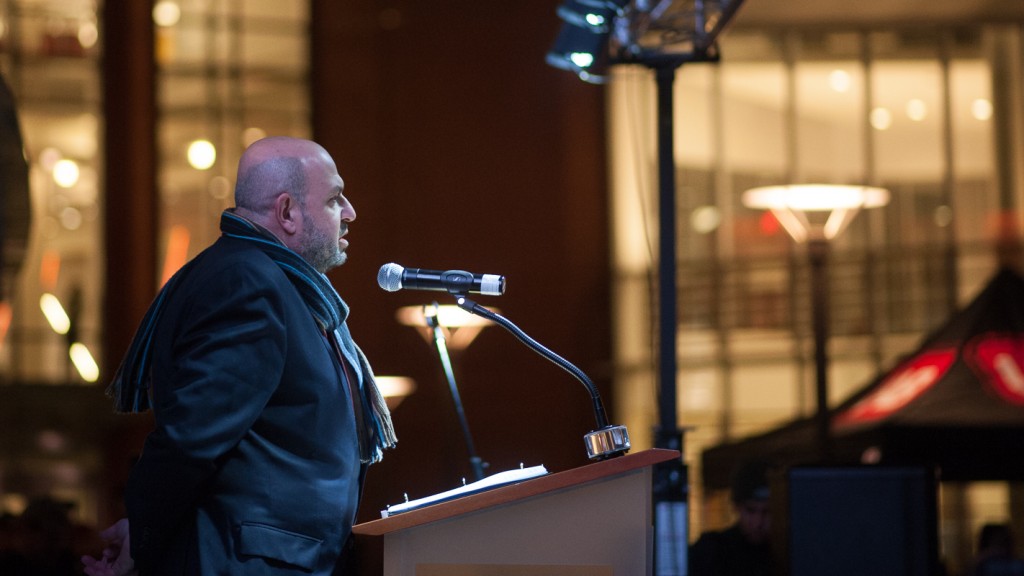
“I have all these snapshots in my mind of being at the burial ground and being at the prayer service and being at the brink of just completely falling apart,” he says. “And then seeing one of the family members and hearing a reassuring word from them, and having them put me back together, so to speak. They found strength and gave it all to us.”
Moussa, now working as a digital design engineer for Google in the San Francisco Bay Area, says his grief — while still present in different forms — no longer eclipses everything in his life, as it once did.
“One of the main feelings that I have looking back all these years later is just gratitude for the fact that our lives intersected at some point,” he says, recalling his friendship with Barakat. “It changed my life in so many ways.”
- Categories:
